Witty prophet of capitalism
OPINION: PJ O’Rourke was a man of his time but at least he was funny.
OPINION: PJ O’Rourke was a man of his time but at least he was funny.
When neoliberalism caught on as a respectable philosophy during the 1980s, in a country where wealth was a scarce and redistribution was an obligation, it added yet another chapter in the history of protest demonstrations.
Street marches have since moved on to full-scale occupations as the weapon of choice when faced with an implacable authority bent on imposing its will.
Four decades ago, the government ran everything, owning most of the economy, regulating what you could buy and sell, and even fixing the prices. Inflation was endemic and growth had stalled, a phenomenon economists called stagflation.
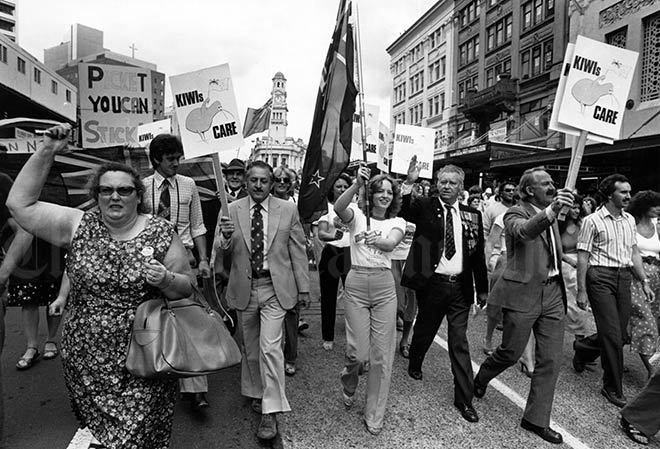
Until then, most demonstrations reflected left-wing or socialist causes. No-one marched in favour of free markets or capitalism until March 1981, when 22-year-old sales rep Tania Harris led 50,000 people down Auckland’s Queen St under the banner of Kiwis Care.
The public was angered, in the words of Te Ara, the online encyclopedia, by a “series of strikes that had stopped international flights, sailings of Cook Strait ferries, and beer deliveries. Many people believed unions wielded too much power and were wrecking the country. Anger had been on display the day before, when up to 4000 striking unionists marched the same route”.
Economic reforms
A decade later, conservative and libertarian ideas had taken hold and New Zealand was being feted around the world for its economic reforms. Think tanks attracted international speakers to put these into a global context. New Zealand was said to have the highest per capita readership of The Economist.
Rankings of the world’s freest and least corrupt economies started to put New Zealand at or near the top. In March 1989, an American writer, PJ O’Rourke, paid the first of two visits (he came back 20 years later).
In an interview to promote his second trip, he told journalist Karyn Scherer (now editor of the NZ Listener) that he saw his role as a proselytiser of capitalism in the tradition of the biblical prophets.
“It seems like every generation or so, people have to be nudged back to the River Jordan and baptised in free market sensibilities. Certainly, after the Depression and World War II, Friedrich Hayek tried to do that with The Road to Serfdom and, in the 1970s, Milton and Rose Friedman with Free to Choose; and such is the degeneracy of the times, that now we’ve got me!
“So that’s going to be my next project. The working title is War on the Poor because it is always the disadvantaged people who end up suffering from these utopian policies the most.”
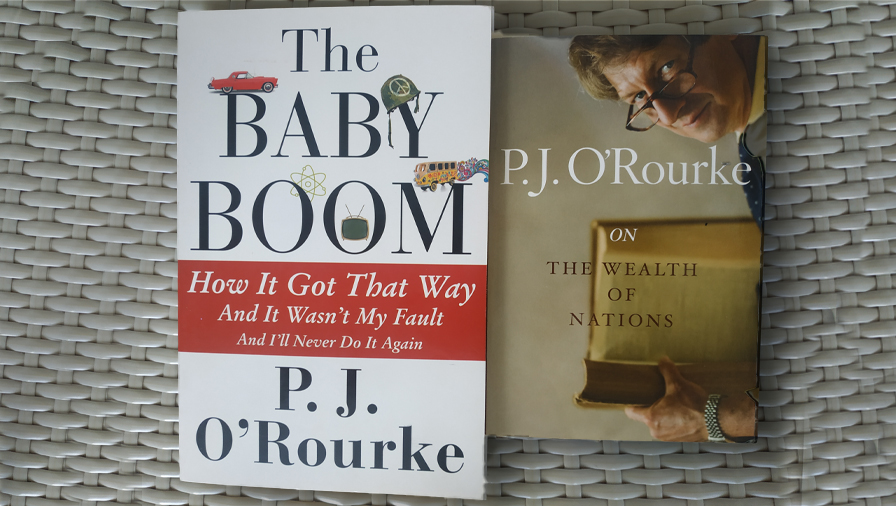
By then, O’Rourke had already produced two books on economics: Eat the Rich (1999) and a recasting of Adam Smith’s The Wealth of Nations (2007), first published in 1776. These were followed by The Baby Boom (2014), a social history of the US since 1945.
The tributes published since O’Rourke’s death from cancer on February 15 have emphasised his ability to use humour and satire to make serious points. He is said to have been the most quoted living man in The Penguin Dictionary of Modern Humorous Quotations. Where some found his outrageous utterances as resembling the ravings of a drunk uncle at a wedding, others saw his self-deprecation as a “demurely wicked” way of making you laugh.
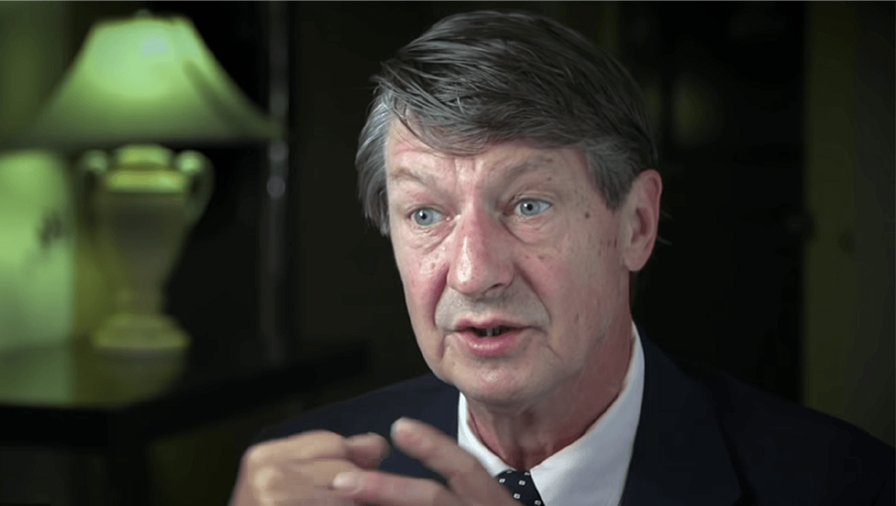
Career beginnings
Like many of his generation, O’Rourke was radicalised in the late 1960s and early 1970s – the Vietnam War era – but had moved across the political spectrum to become a libertarian while doing a postgraduate degree at Johns Hopkins University. Hardworking and prolific, he was a co-editor at National Lampoon, inspiring the movie Animal House, and hit his stride as a roving correspondent for Rolling Stone magazine.
This took him to hot spots around the world and provided the raw material for some of his best-known books: Holidays in Hell (1989), about conflict in the failed states of Africa, Asia, the Americas and the Middle East; Parliament of Whores (1991), about America’s dysfunctional federal system; and All the Trouble in the World (1994), about the futility of Western development aid.
Away from the literary world, he competed with TV political commentators and satirists John Stewart, Steven Colbert, Al Franken, and Bill Maher, defining his ground as that of a conservative but apologetic Catholic, opposed to (American) liberalism, socialism, and most forms of progressive thought.
After leaving his post as foreign editor of Rolling Stone in 2001, he remained in demand from editors of a wide range of magazines, from Playboy and Harper’s to American Spectator, The Weekly Standard, and The Atlantic.
Semi-isolation
In his latter years, O’Rourke moved to semi-isolation in New Hampshire with his second wife, Tina (his first was Amy Lumet, daughter of film director Sidney), and their three children. He was first diagnosed with rectal cancer in 2008, telling Scherer of his treatment, and was further diagnosed with lung cancer in 2018.
As the remote, working-from-home editor in chief of American Consequences, an online magazine, he turned his attention to a new generation that had swung, politically, to the left and had a dreamy view of socialism. In the introduction to a 2021 revised and updated edition of Eat the Rich, he admits the economic information is outdated, as it preceded the digital age of the internet and social media.
“Twenty-five years ago, economics was thought of in terms of gathering physical resources to produce physical goods and services. That the signal economic activity of the 21st century would be gathering ethereal data to produce ephemeral crap came as a surprise.”
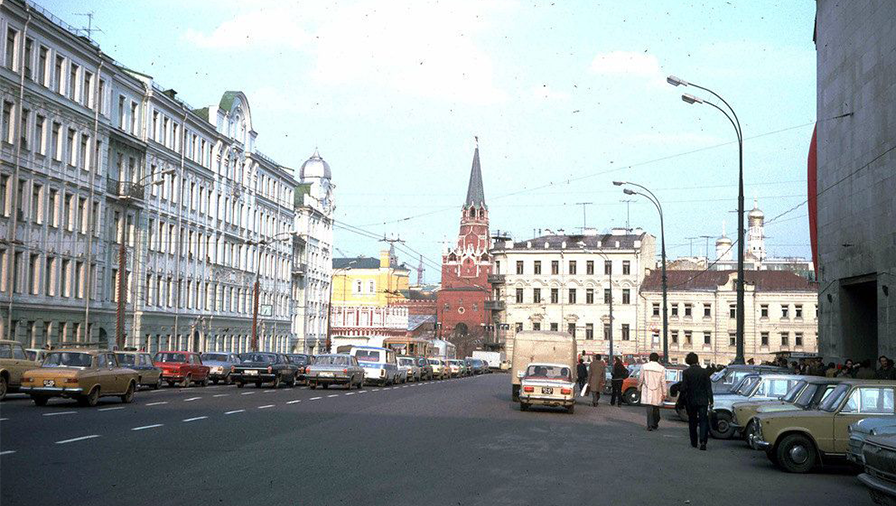
Time and place
This indicates a man set in a time and place that cannot adapt to modern times. But many of his observations remain pertinent, directed as much to his own children as those of recent generations who have limited knowledge of the past.
Here he explains the effects of not having freedom: “I don’t think I really had any idea of the value of economic liberty until I visited the USSR in 1982. The Soviet passenger jet in which I flew had wooden duckboards on the floor of the aisle. Warm water was served by large, angry stewardesses.
“I travelled to Moscow from the near-empty airport that hadn’t been mopped since the Khrushchev era on a bus that hippies would have rejected as too decrepit to make it to Woodstock.
“I got downtown at 9 pm on a Friday night and the city was ... closed. No shops, restaurants, movie theatres, or any commercial activities were visible, not even billboards. There was no traffic. Streetlights were a hundred yards apart. In ranks of gloomy buildings, I could see an occasional window showing the kind of illumination you get from an appliance bulb.
“In the morning, I wandered through a metropolis that seemed to have been built without the use of a spirit level or a plumb bob. People were dressed the way you dress to change the oil in your car. Not that they had cars ...
“The few automobiles, with their styling 30 years postdated, burped smoke and broadcast rattles. I could have made a fortune – if fortunes were allowed to be made – standing on a street corner with a screwdriver and a wrench, adjusting carburettors and tightening bolts ...
“I’m not picking on kids today for being young and dumb ... They’re no younger and dumber than kids definitionally are. The problem is the circumstances they’ve grown up in. This isn’t the first time that American circumstances have led people to hold immature and stupid economic ideas.”
And so it goes, as he updates the places featured in Eat the Rich: Wall Street, Albania, Sweden, Cuba, Russia, Tanzania, and Hong Kong and Shanghai.
Most of O’Rourke’s 20 books remain in print or as ebooks. An 800-page collection, Thrown Under the Omnibus, was published in 2015. Contact the writer by email for access to the American Consequences edition of Eat the Rich.
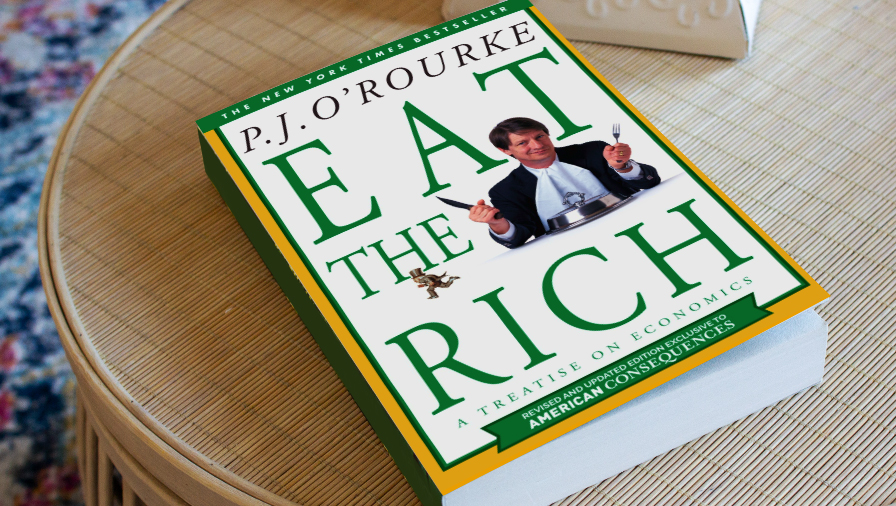
Nevil Gibson is a former editor at large for NBR. He has contributed film and book reviews to various publications.
This is supplied content and not paid for by NBR.